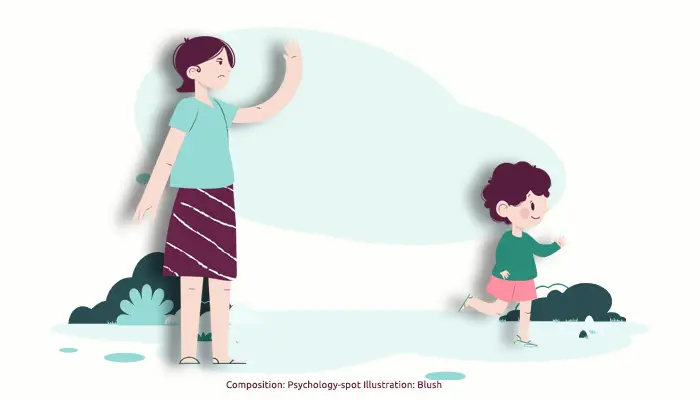
Unfortunately, this formula is increasingly common. But, because the brain of the child develops, is not simply enough to provide the early stimulation to enhance motor and cognitive skills.
The physical presence and care of the parents are also necessary as well as their affection.
Therefore, the tendency to let children be raised by the TV and playing video games could be very dangerous.
The absence of parents affects the brain development of children
The researchers at the Sichuan University concluded that children who spend long periods without their parents suffer a delay in brain development. To reach these conclusions, they analyzed a group of children whose parents had to travel constantly for work. Some of them left the house for months, some even spent a whole year out.
In fact, other studies in the past pointed to the fact that parental care directly affects the brain development of their children. However, these investigations had been made with orphans, children fully deprived of their paternal care. This time, the psychologists focused their attention on children who simply didn’t spend enough time with their parents.
The researchers scanned the brains of 38 children, aged between 7 and 13. They compared then the results with those of 30 children living with their parents’ full time.
So far, they could see that the “abandoned” children had more gray matter in the brain areas involved in memory and emotions. The researchers believe that this is due to insufficient synapses; it means they didn’t develop the necessary neural connections for their age.
What is gray matter?
This is the image of a brain as the child grows. As you can see, neurogenesis is increased to the same extent that the child is exposed to different stimuli.
Broadly speaking, we can say that throughout the neuronal dvelopment, as neural connections mature and become stable, they also thicken as are gradually coated with a white substance called myelin, which is what makes that the connection works quickly and efficiently. On the other hand, neurons that have no such sheath contain gray matter, which can’t transmit nerve impulses so quickly.
In the popular imagination the amount of gray matter has always been associated with greater intelligence and reasoning ability, but isn’t always true. In fact, just think that dolphins’ brains contain more gray matter than humans. Furthermore, it has been noted that autistic children have a greater volume of gray matter in areas of the brain linked to empathy and observational learning, indicating that too much gray matter isn’t something positive. In fact, in a developing brain, an increased gray matter volume may reflect immaturity.
Thus, children who don’t spend much time with their parents showed an increase in the volume of gray matter, and a tendency to have a lower IQ. This is the first study to show empirical evidence that the lack of direct parental care affects brain development.




